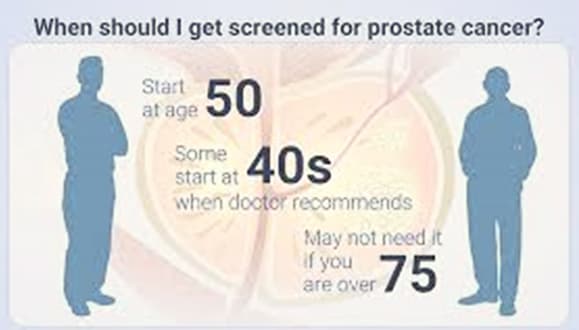Screening for prostate cancer isn’t the same for everyone. Understanding your personal risk factors, like your age, race, and family history, can help determine the right time to begin screening and what tests might be most useful.
General Recommendations:
Men start discussing screening with their primary care physician or urologist around the age of 50. However, some groups are at higher risk and may benefit from earlier screening, starting as early as age 40–45.
High-Risk Groups: Who Needs Earlier Screening?
African American Men
More likely to develop prostate cancer.
Often diagnosed at a younger age and with more aggressive disease.
Recommended to begin discussing screening around age 40–45.
Family History of Prostate Cancer
Having a father or brother with prostate cancer, especially if diagnosed before age 65, doubles one’s risk of developing clinically significant prostate cancer.
A strong family history may warrant earlier and more frequent screening.
Hereditary Cancer Syndromes
If close relatives have breast or ovarian cancer, especially with BRCA1 or BRCA2 mutations, your prostate cancer risk increases.
Men with known BRCA mutations may benefit from early screening and genetic counseling.
When to Start the Screening:
Risk Level ---> When to Discuss Screening
Average Risk ---> Around age 50
African American / 1st-degree relative with prostate cancer ---> Age 40–45
BRCA mutation or strong family history of breast/ovarian cancer ---> Age 40–45
